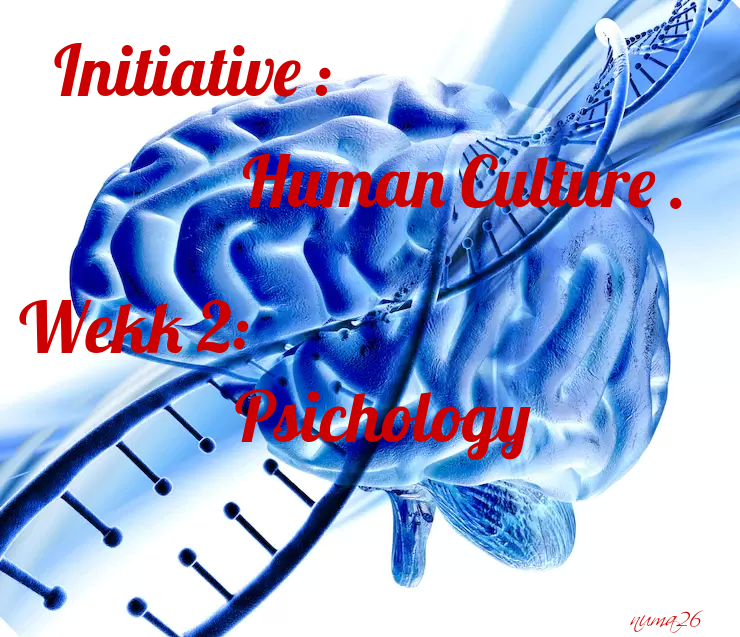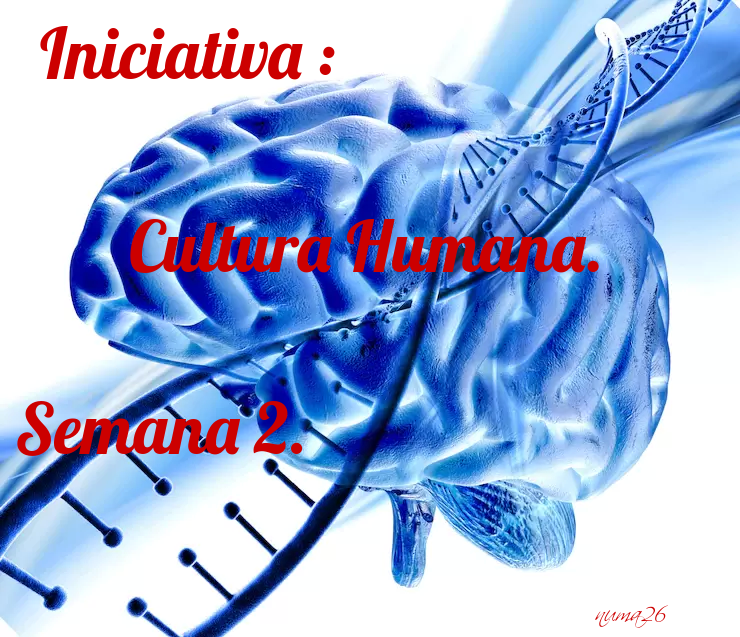

"The environment shapes the actions of the individual."Burrhus Frederic Skinner

If we take into account that an action is translated as the response that an individual expresses or experiences before a determined stimulus, and that the environment is everything that surrounds him socially and environmentally; it is feasible to demonstrate that each individual, since his existence, has his own individual characteristics in his DNA, and that his responses have not been identical for both internal and external reasons.
We are concerned with the theory of Burrhus Frederic Skinner (1904-1990), who programmed individuals, thus achieving a purely behaviorist learning.*1 Other psychologists developed cognitive theories that are still valid today. For example, the psychologist Bruner Jerome, (1915.2016), in his cognitive theory, affirms that learning begins in the mind and that if we can go back and discover thoughts that are already stored, they must be brought to the present, managed and conceptualized.*2
In relation to the social environment, that is, the space where each individual develops. This has to do with many elements that will also have a role, if not directly, in a very subtle way in their behavior, such as cultural, educational, economic, labor, etc.
If we analyze the response of an individual based on Skinner's theory, we could affirm that he is capable of changing his reactions to stimuli that would eventually produce some positive or negative behavior, depending on the stimulus or reinforcement that is applied.
My example, focused on the educational field, is based on the fact that each individual experiences reactions to any eventuality in the environment, from the early stages of development. I could affirm that there is a great difference between the type of conditioning by programmed learning and cognitive learning. In my opinion, programmed learning stimulates the senses punctually and automates them.
This learning would be evaluated according to stimuli that could lead the subject to success or failure, depending on his action. And depending on this, the learner could be a victim of this environment. This means that his action does not depend on himself, but on who induced him to it. Each individual can be made to produce totally different responses to each other. Thus demonstrating that each individual's environment is not the same and neither are their actions in such environments.
Let us suppose that two individuals received their initial learning based on these two theories. Skiner's "Operant conditioning", and Bruner's "Cognitive". Both individuals obtained their learning through the application of both theories.
When they become adults, they are assigned to work in a company where the boss is authoritarian and harmful to the staff. The results in this case will vary between these two subjects. They will react differently. Because of their learning background.
He, who was educated with the learning method by operant conditioning, would go to the boss and react in a violent and automatic way, or maybe he would remain calm and without reacting, in this case it would be an extinction behavior. This will depend on which of the negative or positive reinforcements are activated in this situation.
On the other hand, the person who experienced his learning by himself, with the theory of cognitivism, discovered and transformed his knowledge, being able to analyze the situation conscientiously and react according to his convenience and learning.
In that sense, the environment would indeed shape the action. However, taking into consideration the two previous examples, my answer to the initial question would be that the shape of the actions of each individual will not depend on his environment, but on the basis of previous teachings, together with his individuality par excellence.

Today I begin my journey through this community: Humanitas, for the first time. I decided to participate in this initiative because the topic in question has always caught my attention as a teacher. Talking about Learning Theories makes me feel back in the classroom. I hope I have fulfilled my expectations in responding and yours in reading me. Maybe a little late, but I feel that my friend @aurodivys might be interested in this beautiful initiative. There are still a few hours left



"El entorno da forma a las acciones del individuo"
Burrhus Frederic Skinner

Si tomamos en cuenta que una acción se traduce como la respuesta que un individuo, expresa o experimenta ante un estímulo determinado, y que el entorno, es todo lo que lo rodea social y ambientalmente; es factible poder demostrar que cada individuo, desde su existencia, posee características individuales propias en su ADN, y que sus respuestas no han sido idénticas por razones tanto internas como externas.
Nos ocupa la teoría de Burrhus Frederic Skinner (1904-1990), quien programaba individuos logrando así, un aprendizaje netamente conductista. *1 Otros psicólogos desarrollaron teorías cognoscitivas que aún están vigentes. Por ejemplo, El psicólogo Bruner Jerome, (1915.2016), en su teoría cognitiva, afirma, que el aprendizaje comienza por la mente y que si logramos retroceder y descubrir pensamientos que están ya almacenados, se deben traer al presente, manejarlos y conceptualizarlos.*2
Con relación al entorno social, es decir, el espacio dónde se desenvuelve cada individuo. Este tiene que ver con muchos elementos que igualmente van a tener un protagonismo, si no directo, de manera muy sutil en su comportamiento, como lo es el ámbito cultural, educativo, económico, laboral, etc.
Si analizamos la respuesta de un individuo basado en la teoría de Skinner, pudiéramos afirmar que es capaz de cambiar sus reacciones ante los estímulos que le produciría, eventualmente, algún comportamiento positivo o negativo, dependiendo del estímulo, o reforzamiento que se aplique.
Mi ejemplo, centrado en el ámbito educativo, se basa en que cada individuo experimenta reacciones ante cualquier eventualidad del entorno, desde sus primeras etapas de desarrollo. Pudiese afirmar que existe una gran diferencia entre el tipo de condicionamiento por aprendizaje programado y el aprendizaje cognitivo. Desde mi apreciación, el aprendizaje programado estimula puntualmente los sentidos y los automatiza.
Este aprendizaje sería evaluado de acuerdo a estímulos que podrían llevar al sujeto hacia el éxito o al fracaso, dependiendo de su acción. Y dependiendo de esta, el aprendiz podría ser víctima de ese entorno. Esto quiere decir, que su acción no depende de sí mismo, sino de quién lo indujo a ello. Se puede lograr que cada individuo produzca respuestas totalmente diferentes uno del otro. Demostrando así, que el entorno de cada uno no es igual y las acciones ante tales entornos, tampoco.
Supongamos que dos individuos recibieron su aprendizaje inicial basado en estas dos teorías. La de Skiner “Condicionamiento operante”, y la de Bruner “Cognoscitiva”. Ambos individuos obtuvieron su aprendizaje a través de la aplicación de ambas teorías.
Cuando se convierten en adultos, les corresponde trabajar en una empresa donde el jefe es autoritario y dañino con el personal. Los resultados en este caso van a variar entre estos dos sujetos. Pues van a reaccionar distinto. Debido a sus antecedentes de aprendizaje.
Él, que fue educado con el método de aprendizaje por condicionamiento operante, iría dónde el jefe y reaccionaría de manera violenta y automática, o quizá se quedaría tranquilo y sin reaccionar, en este caso sería una conducta de extinción. Ello va a depender de cuál de los refuerzos negativo o positivo se activen en esta situación.
En cambio, el que experimentó, por sí mismo sus aprendizajes, con la teoría del cognitivismo, descubrió y transformó sus conocimientos, pudiendo analizar concienzudamente la situación y reaccionar de acuerdo a su conveniencia y aprendizaje.
En ese sentido, el entorno sí daría forma a la acción. Sin embargo, tomando en consideración los dos ejemplos anteriores, mi respuesta a la pregunta inicial sería, que la forma a las acciones de cada individuo no van a depender de su entorno, sino a partir de la base de enseñanzas anteriores, junto a su individualidad por excelencia.

Hoy inicio mi caminar por esta comunidad: Humanitas, por primera vez. Me animé a participar en esta iniciativa, pues el tema en cuestión, siempre me ha llamado la atención como docente. Hablar acerca de las Teorías del Aprendizaje, me hace sentir nuevamente en las aulas. Espero haber cubierto mis expectativas al responder y las vuestra al leerme. Tal vez un poco tarde, pero siento que a mi amiga @aurodivys , pudiera interesarle esta hermosa iniciativa. Aún quedan algunas horas.


The rewards earned on this comment will go directly to the people(@numa26) sharing the post on Twitter as long as they are registered with @poshtoken. Sign up at https://hiveposh.com.
Gracias por participar en esta iniciativa estimada @numa26 , en verdad nos has otorgado de información interesante,debo confesar que me gustó el enfoque que le has dado a tu escrito. Ciertamente mucho de lo que podemos llamar entorno pasa por alto, y sin imbargo nos llevan a comportarnos de cierta manera. El entorno nos afecta y muchas veces ni notamos el cómo. Me gustó que has abordado el asunto de la maleabilidad de nuestro comportamiento con respecto al condicionamiento operante. Saludos.
Muchísimas gracias por su aceptación. Amigo @eudemo. Les auguro grandes éxitos, en una comunidad que nos invita a activar nuestros pensamientos, así como a aprender de cada uno de los que aquí publican y exponen excepcionalmente sus opiniones libremente. De eso se trata, Saludos y mis cariños.😍
¡Enhorabuena!
Gracias por compartir tan excelente publicación, la cual ha sido valorada por Humanitas una comunidad para destacar la indecible capacidad humana para construir una sociedad verdaderamente humana.
Suscribete aquí si no lo has hecho @hive-186119
También te invitamos a unirte a nuestro grupo de Telegram
Te invitamos a seguirnos en nuestra ruta de curación.
Hola @numa26 bienvenida a #Humanitas! valoramos su participación y aporte en la iniciativa.
EN cierto sentido llegamos a las mismas conclusiones, el entorno forma en gran medida nuestras acciones, pero si tendríamos un pequeño margen para "pensar por nosotros mismos".
¡Saludos!
Hola amigo @acont . Gracias por tu recibimiento. Me alegra mucho saber que fue aceptado mi aporte de vuestra parte. En efecto, lo mejor de todo es que nosotros tenemos el privilegio del raciocinio. Mis cariños y deseos de éxitos a granel, en esta hermosa comunidad.😍
Gracias a usted, esperamos leer más de los usuarios en la comunidad #Humanitas
¡Saludos!
Creo que el tipo de aprendizaje ideal es - siguiendo tu narrativa - es el cognitivo, esto no quita mérito a Skinner sino que lo pone en su lugar, y es que por mucho que puede hacer el entorno en el individuo (para bien o para mal) el desarrollo real del mismo se da cuando éste asume las riendas de sus acciones, es decir, cuando toma conciencia de las implicaciones de las mismas en su vida y así las asume.
!PIZZA
Por supuesto, pues cuando nos trasladamos al aprendizaje por conocimientos previos y sin condicionamientos, estamos logrando resultados predecibles tanto en el tiempo como en el espacio. Saludos y gracias por tu valioso comentario y visita.
PIZZA Holders sent $PIZZA tips in this post's comments:
(6/10) @jesusalejos tipped @numa26 (x1)
You can now send $PIZZA tips in Discord via tip.cc!
Muchás gracias por vuestro apoyo.